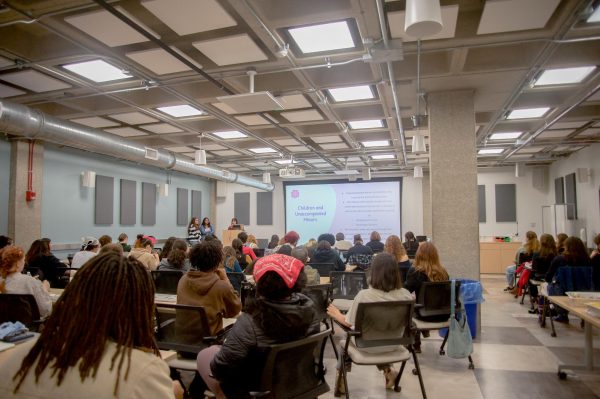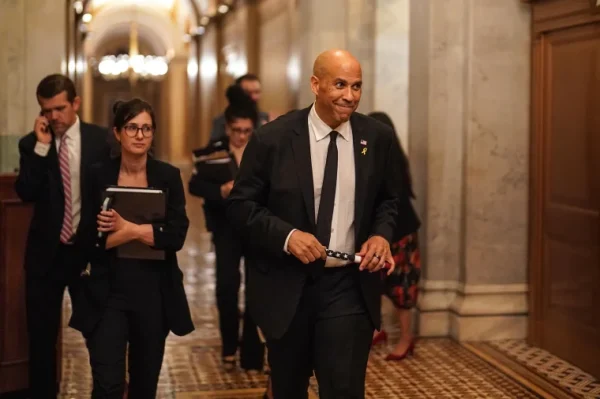An Open Letter from Arabic 102
On Feb. 22, the Review published an article announcing that the Arabic teaching assistant position would be cut next year (“French and Arabic Teaching Assistant Programs Reduced”). This was quickly followed up with another article explaining that due to concerns over its long-term sustainability, Oberlin’s Arabic program would be cut and replaced with an online Shared Language Program (“Arabic Courses to Be Offered Digitally,” The Oberlin Review, March 8, 2019). As first-year Arabic language students, this decision saddens us. We strongly believe that this path will seriously harm Arabic study and related fields at Oberlin. However, as much as we have been upset by the decision to cut the Arabic program, we have been even more disheartened by the misinformation that has dominated the campus conversation so far. We, the students of Arabic 102, want to set the record straight and make our case for why Arabic must continue at Oberlin.
First, and probably most confusing, has been this decision’s relationship to the controversial Academic and Administrative Program Review process. We understand and want to make clear that this decision is unrelated to the AAPR process. However, what has been frustrating to us and other professors has been that the desire to eliminate the position of Arabic professor has neither been explained nor justified beyond saying that the program’s underlying grant has expired. This isn’t to say that the lack of funding isn’t an understandable concern, but that we would have appreciated the chance to work with the administration to find a sustainable funding solution instead of being dealt a fait accompli.
Second, the administration claims that they are cutting the on-campus program due to low student interest and enrollment in the language. They have pointed repeatedly to the Intermediate Arabic level, which currently has two fantastic and dedicated students enrolled. Yet this represents a half-truth. In addition to the two Intermediate Arabic students at Oberlin, three more students are currently studying Arabic abroad, and several more have taken upper-level Zoom courses through Oberlin’s Shared Languages Program. Furthermore, the administration has entirely neglected to mention that the Beginning Arabic level currently has 13 students enrolled, and that nine of us are committed to taking the Intermediate Arabic course next year. The other four students are graduating from the College but have expressed the sentiment that if they had another semester, they would also continue. The slow winnowing of enrollment as students reach the upper levels of the language program is also symptomatic of a lack of resources allocated to the Arabic program. Students don’t feel like they should invest time into learning a language if upper-level courses in that language don’t exist. This is especially true considering the burden of running an entire department is placed on Professor Basem Al-Raba’a, its sole professor. Professor Al-Raba’a, alongside our wonderful teaching assistant Hawraa Sana, has put an incredible amount of effort into building our department up into what it is today. Their dedication and passion for sharing their knowledge of the Arabic language, in addition to the culture of the Arab world as a whole, is remarkable.
The College’s logic for cutting the Arabic department — that they shouldn’t invest in teaching the Arabic language because fewer people are taking the higher levels — is therefore circular. Instead of simply just leaving things the way they are, the College should look at ways to increase Arabic language learning, thus maintaining higher levels of interest.
Third, we are concerned about the implication that the SLP class will be equivalent to a classroom setting for Arabic education. We do not believe that online classes will be a sufficient alternative to the classroom experience. Learning a language involves making mistakes, and having a tight-knit community allows us to be vulnerable during our learning process. In addition, having an instructor in the same room with us to encourage and support our journey has made all the difference. The personal, face-to-face connection between instructor and student cannot be replaced by talking to someone through a screen so early in our Arabic education. Learning about culture not only provides the foundation and background knowledge for language learning, but also fosters love and passion for that language. One of the most important parts of our Arabic 102 class is Conversation Hour, where we learn about different elements of Arab culture.
The SLP was initially integrated into Oberlin’s language curriculum as a supplement to the Arabic program, leaving our one professor with more time to teach content courses, therefore enriching the Middle East and North Africa Studies program. However, the College’s current proposal, if approved, would see the SLP completely replace Arabic classes on-campus. This is particularly detrimental because the SLP does not and cannot offer introductory Arabic. This means that this will be the last year of introductory Arabic at Oberlin. Ironically, the SLP is itself supported by an external grant that is set to expire within the year; thus, this proposal is just a symbolic concession to students in an effort to quiet concern.
For these reasons, we strongly oppose the Arabic language changes. We want to work with the administration to preserve Arabic in a sustainable form. Despite the array of harmful misconceptions surrounding these changes, we urge the Oberlin administration and community to join us in working to reach a real solution for the benefit of all.
Roman Broszkowski, OC ’19 (Politics)
Willow Tomkovicz, OC ’20 (History and Middle East North African Studies)
Anna McLean, OC ’21 (Politics)
Charlie Thompson, OC ’19 (Comparative Literature)
Anthony Gao, OC ’22 (Biochemistry and Middle East North African Studies)
Thomas Rice, OC ’20 (History)
Kellianne Doyle, OC ’19 (History and Politics)
Abby Bentley, OC ’22 (Visual Arts and Middle East North African Studies)
Molly Marshall, OC ’21 (History, Politics, Middle East North African Studies)
Charlotte Apter, OC ’22 (History and Middle East North African Studies)
Bethany Gen, OC ’21 (Psychology, Politics, Middle East and North African Studies)
Gio Donovan, OC ’21 (Africana Studies and English)
Katie Hillebrand, OC ’20 (Politics, Gender Sexuality and Feminist Studies, Middle East and North African Studies)




